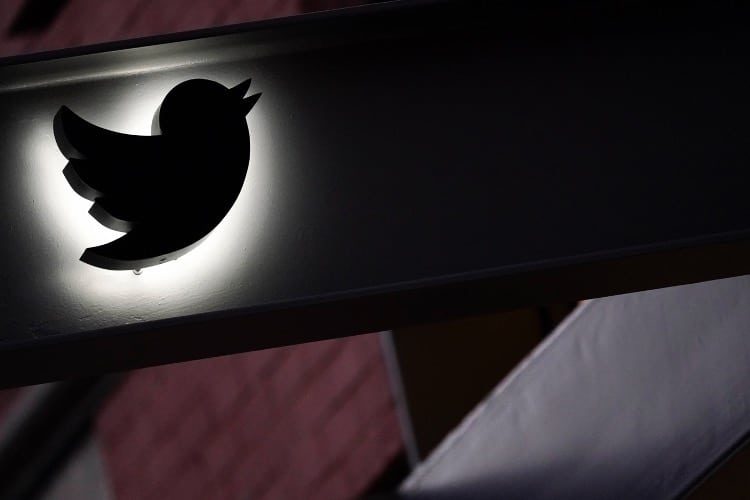
On May 26, European Union (EU) Commissioner Thierry Breton announced that Twitter has backed out of the EU’s voluntary Code of Practice on Disinformation. The code stipulates that online platforms such as Google, TikTok, Microsoft, as well as Facebook and Instagram parent company Meta, agree to participate in “anti-disinformation” efforts.
Breton then elaborated that Twitter’s non-participation does not imply that the platform could eschew its duties under the European DSA (Digital Services Act), the EU’s new content-moderation slated to materialize on August 25 this year.
“You can run, but you can’t hide,” Breton ominously cautioned in his tweet.
Prior to Breton’s declaration, other EU officials speculated on the possibility of Twitter’s withdrawal from the anti-disinformation code. According to reports from Politico and Euractiv, an anonymous EU official had anticipated an announcement regarding Twitter’s withdrawal.
“I was waiting for this. It was purely a matter of time,” the EU official reportedly admitted to Euractiv. “It is the only way, and we can not force them out,” he pointed out, but highlighted that Twitter’s move did not mean that it was withdrawing from Europe entirely. Rather, the official acknowledged that the EU Commission could be relieved by Twitter’s withdrawal as the Commission has been at Elon Musk’s failure to fulfill the Commission’s demands.
After Elon Musk assumed control over Twitter in October, entire departments, including those in charge of content moderation in the firm, were removed as part of Musk’s attempts at streamlining the company.
In light of Musk’s streamlining of Twitter, Twitter’s supposed withdrawal from the EU’s anti-disinformation code would not make a huge impact, the same official admitted.
“It just means that they will not attend meetings and not issue reports. They would still have legal obligations,” the official said, alluding to the DSA that was preceded by the Code of Practice.
Recently, the EU Commission categorized Twitter, together with 18 others, as a Very Large Online Platform, a categorization that entails stringent transparency and risk-management responsibilities to meet.
Uncertainty still looms over whether Twitter can adhere to the additional requirements under the DSA, which mandates that Twitter be proactively involved in content-moderation efforts on its platform. Breaches of the rules specified in the DSA could lead to penalties, the harshest of which is a fine of around six percent of the offending firm’s global turnover.
Moreover, a second EU official dealing with the Code of Practice revealed to Euractiv that Twitter had first unveiled the warning at a meeting between representatives of Twitter and those of the Commission on May 24.
Notably, the second official posited that although Twitter’s representatives asserted that the platform had inched toward using Community Notes regarding the issue of content moderation, such a move was still a far cry away from the top-down approach to content moderation that the EU had imagined.
A Commission spokesperson revealed to Euractiv that, as of the time of the interview, “Twitter has not complied properly with its first reporting obligation under the strengthened Code, and the Commission has also indicated concerns regarding Twitter’s compliance with its commitments to dedicate adequate resources and measures to reduce disinformation, as well as regarding providing access to data for researchers and fact-checking.”
Without much progress in following DSA obligations, and given that the EU is a secondary market for Twitter, the platform may eventually stop serving Europe altogether.
Across the Atlantic, the Brazilian government began advocating for the establishment of an online “fact-checker” to single out “fake news”. However, in an environment hostile toward conservative politicians and critics of controversially elected Brazilian leader Luiz Inácio “Lula” da Silva, such a “fact checker” project appears to be an effort to entrench da Silva’s political prowess. Based on a report by al-Jazeera, Cristina Tardáguila, founder of the Lupa Agency, which seeks to tackle disinformation, portrayed what Brazil’s government wants as “propaganda” instead of “fact-checking.”
At the moment, Brazil’s Congress has been trying to impose what has been labeled as a “Fake News Bill”. The bill, which faced protests from large companies such as Google, would outlaw online content reported to be a severe enough threat to “social peace” and the country’s “economic order.” Members of particular online groups that either produce or share content deemed as threats to “social peace” would be charged criminally.
Věra Jourová, the European Commission’s vice-president for values and transparency, as well as the DSA, also pointed out the EU’s new rules for social-media and internet platforms such as Twitter.
On August 25, a broad range of harsh rules, stipulated in the DSA, will be implemented on several internet platforms such as Facebook, Instagram, YouTube, TikTok, and Twitter, the European Commission reported. In a tweet, European Commissioner Thierry Breton said that “with great scale comes great responsibility,” and that starting August 25 “extra DSA obligations” would be asked of those companies listed.
It is not just social-media platforms that have to fall in line should they want to still be able to operate in the EU. Amazon Store, AliExpress, Bing, Booking.com, Google, Wikipedia, and Zalando, among others, equally fall under the Act. Welcomed in April of last year by European policymakers, the DSA, on the mere pretext of contributing towards a “safer” internet, mandates platforms to abide by widespread rules on a broad range of “areas of concern,” such as targeted advertising as well as algorithm use by social media companies.
In concrete terms, the DSA mandates social-media companies to prove why they have a particular advertisement. If companies delete posts, they must offer reasons for their actions. Targeted ads for EU citizens under the age of 16 will be banned, and platforms must make their data accessible for “scientific research.” The dissemination of child pornography on online forums will be observed carefully.
Additionally, Very Large Online Platforms (VLOPs) that have at least 10 percent of the EU’s 450 million consumers, such as Google and Facebook, will have to organize an annual risk assessment study, which, if not done, will bring huge fines (upwards to six percent of their global turnover).



